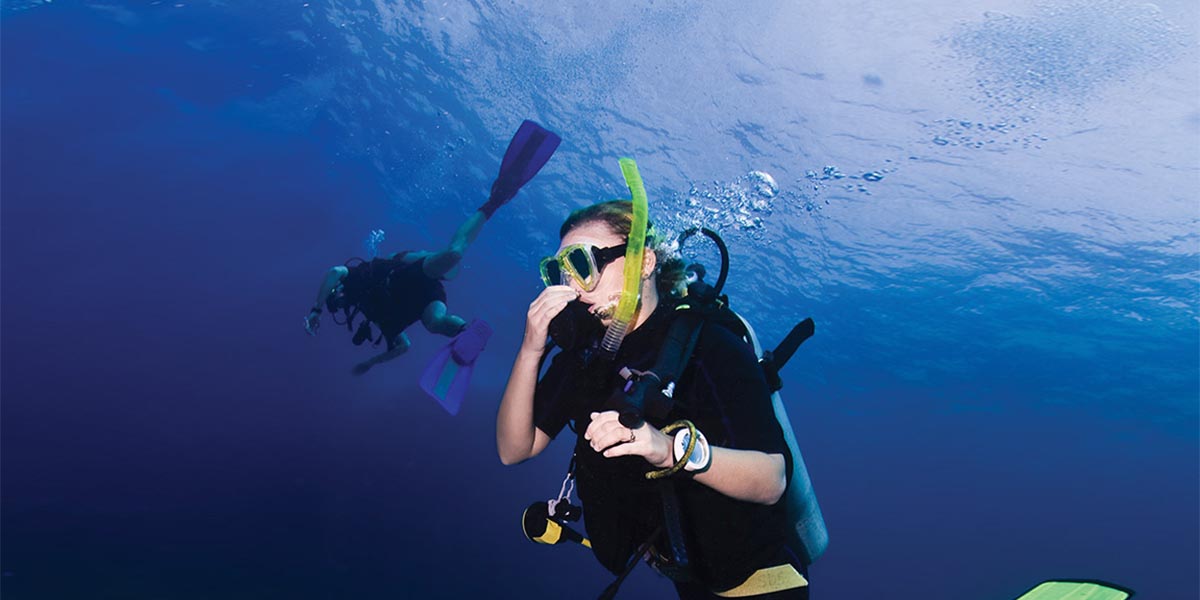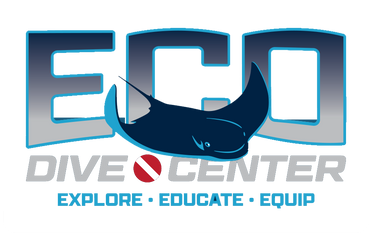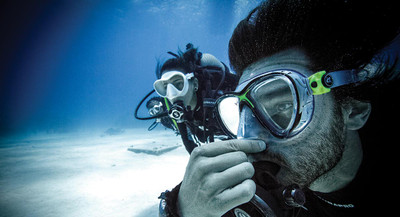How to Get Better at Equalizing
Posted by Dive Professional: Will Taylor on on Apr 24th 2023
Equalizing is a critical skill that scuba divers need to master to prevent ear pain, discomfort, and possible injury. Equalizing helps to balance the pressure inside and outside of the ear, which can become uneven as a diver descends into deeper waters. Many divers struggle with their equalizing so here are some effective techniques and tips on how to get better at equalizing underwater.
1.Start early
The key to successful equalization is to start early and do it frequently. Before even entering the water, practice equalizing techniques while still on land to ensure that you understand the mechanics of the process. Once you are in the water, start equalizing as soon as you start descending. Waiting until you feel discomfort or pain before equalizing can make the process more difficult and even painful.
2.Use the Valsalva maneuver
The most common technique used for equalizing is the Valsalva maneuver. To perform this technique, pinch your nose closed with your fingers and gently blow air out through your nose while keeping your mouth closed. This technique helps to equalize pressure by opening up the Eustachian tubes that connect your ears to your throat.
It's important to remember not to blow too hard or too forcefully, as this can cause damage to your ears. Instead, blow gently and gradually until you feel a pop or a click in your ears. If you are unable to equalize, stop descending and ascend slightly until you can equalize comfortably.
3.Try the Toynbee maneuver
The Toynbee maneuver is another technique that can be used to equalize pressure. To perform this technique, pinch your nose closed with your fingers and swallow. This technique helps to open up the Eustachian tubes by contracting the muscles in your throat and opening up the tube.
The Toynbee maneuver can be particularly useful for divers who are having trouble equalizing with the Valsalva maneuver. It's also a good technique to use if you have a cold or congestion, as it can help to clear your nasal passages and allow for easier equalization.

4.Descend slowly
One of the most important things to remember when equalizing is to descend slowly. Descending too quickly can cause pressure to build up in your ears, making equalization more difficult and even painful. Take your time and descend slowly, giving yourself plenty of time to equalize as you go.
5.Use a descent line
Using a descent line can help you to control your descent and make it easier to equalize. A descent line is a weighted line that is attached to the boat or anchor and is used to guide divers down to the desired depth. By using a descent line, you can control your descent speed and take your time to equalize as you go.
6.Keep your head level
Keeping your head level can also make it easier to equalize. Tipping your head too far forward or backward can make it more difficult for air to flow through your Eustachian tubes, making equalization more difficult. Keep your head level and try to maintain a comfortable, relaxed position as you descend.
7.Stay hydrated
Dehydration can make it more difficult to equalize, as it can cause your nasal passages and throat to become dry and irritated. Make sure you drink plenty of water before and during your dive to help keep your nasal passages and throat moist and comfortable.
8.Take breaks
If you are having trouble equalizing, take a break and ascend slightly until you can equalize comfortably. Once you have equalized, you can begin your descent again. Taking breaks can help to prevent discomfort and injury and ensure that you can continue diving safely and comfortably.
Check out our website for Scuba Gear.
Call us we have daily specials on all brands of gear, we might just be having a sale at theDiveCenter.
Feel free to contact us for expert Scuba advice and we are open every day.
1-888-728-2252

